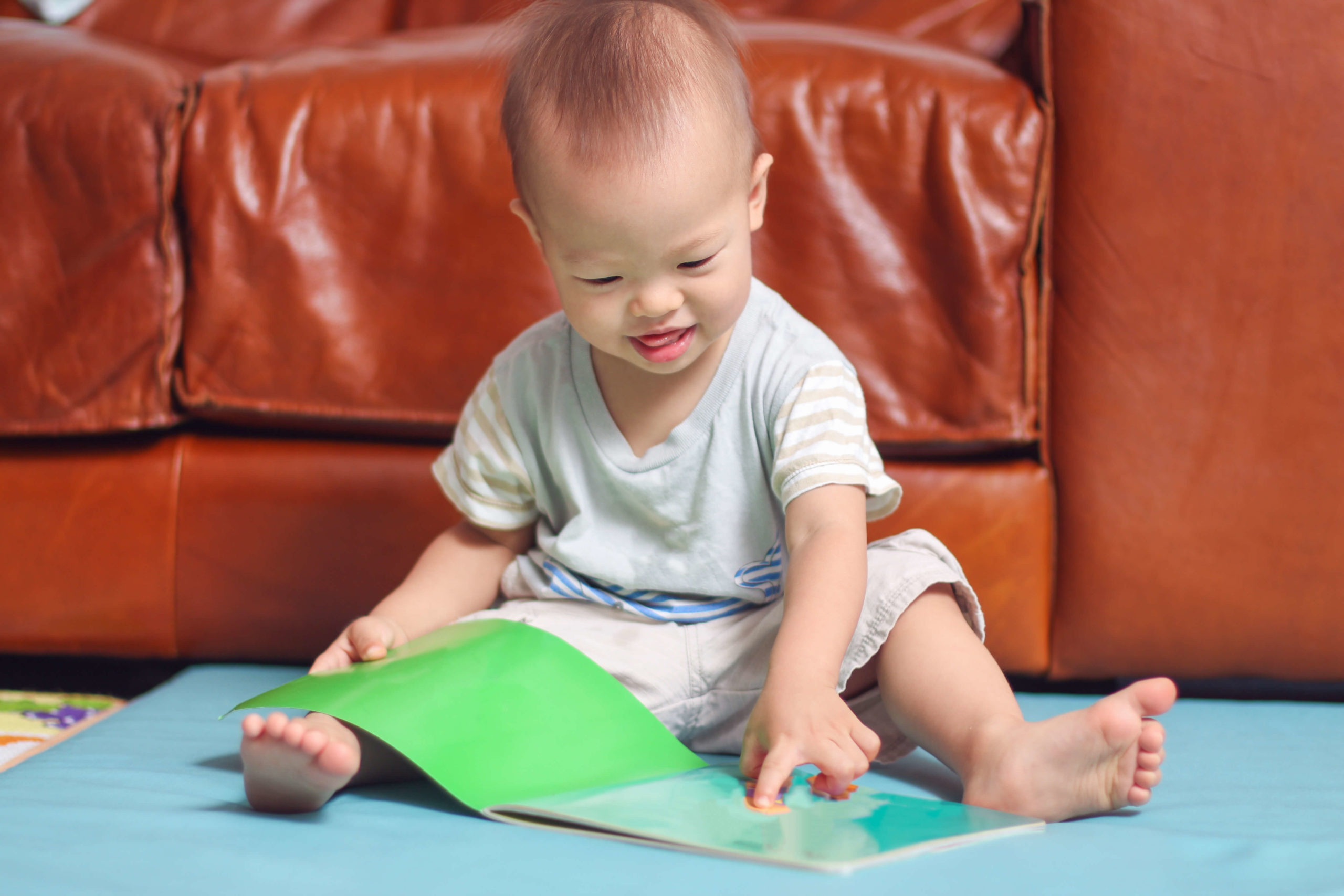Developmental Communication Milestone Series: 18 Months
 What does communication at 18 months of age look like? Toddlers are understanding many more words and phrases than they are able to say. They are able to understand words used to describe what is happening now, as well as words to describe what will happen next. Toddlers at this age are also able to follow one step directions that are paired with gestures or visual cues, and they are able to make and understand choices.
What does communication at 18 months of age look like? Toddlers are understanding many more words and phrases than they are able to say. They are able to understand words used to describe what is happening now, as well as words to describe what will happen next. Toddlers at this age are also able to follow one step directions that are paired with gestures or visual cues, and they are able to make and understand choices.
Expressively, toddlers’ words reflect what they hear most often as caregivers talk to them or near them. Caregivers are the role models for toddlers who are learning speech and the meaning of words. At this age, toddlers should be saying several words or word approximations, but they continue to use gestures as their primary means of communicating. They should consistently be initiating social interactions with familiar adults and indicating what they want by pointing, jumping up and down to gain attention, tugging on an adult’s clothing, or shaking their head yes or no.
What Communication Should Toddlers have by 18 Months?
- Walk toward you when you open your arms for a hug
- Show enjoyment and participate in finger play and songs such as “Itsy Bitsy Spider”
- Point to correct pictures in a book when asked, “Where’s the ______?”
- Pick up their spoon when told to use a spoon instead of fingers
- Follow simple directions such as, “Please bring me the ball from the table”
- Get a tissue from the box when told they need to wipe their nose
Expressively, toddlers should:
- Spontaneously greet family members with a sound that clearly resembles “hi” or “hello”
- Use word approximation to request milk when they want more to drink
- Use word approximations to “name” several pictures in books as they turn the pages
- Put several words together, such as “bye bye da-da”
- Talk into their toy phone and pause, as if listening to someone on the other end
- Tell caregiver things like “shoe wet” when they come in from playing in the yard
Your toddler may need additional support if they:
- Do not respond to explanations about what is going to happen next
- Become angry when routines are interrupted
- Look at you without moving after you ask them to choose a book to read or choose a snack to eat
- Point to only one picture in a book when asked to find all the animals
- Babble without consistent sounds
- Use gestures but very few sounds when trying to communicate
- Are just beginning to use word-sounds with meaning, such as “ma-ma” or “ba-ba”
- Use gestures that are so general it is difficult to understand their meaning
Check out 24 Month Communication Milestones to learn what your child should develop next. If you have questions or concerns about your toddler’s speech development, call MOSAIC Rehabilitation at (406) 388-4988. We offer free 15 minutes screens and are happy to answer any questions you might have.
